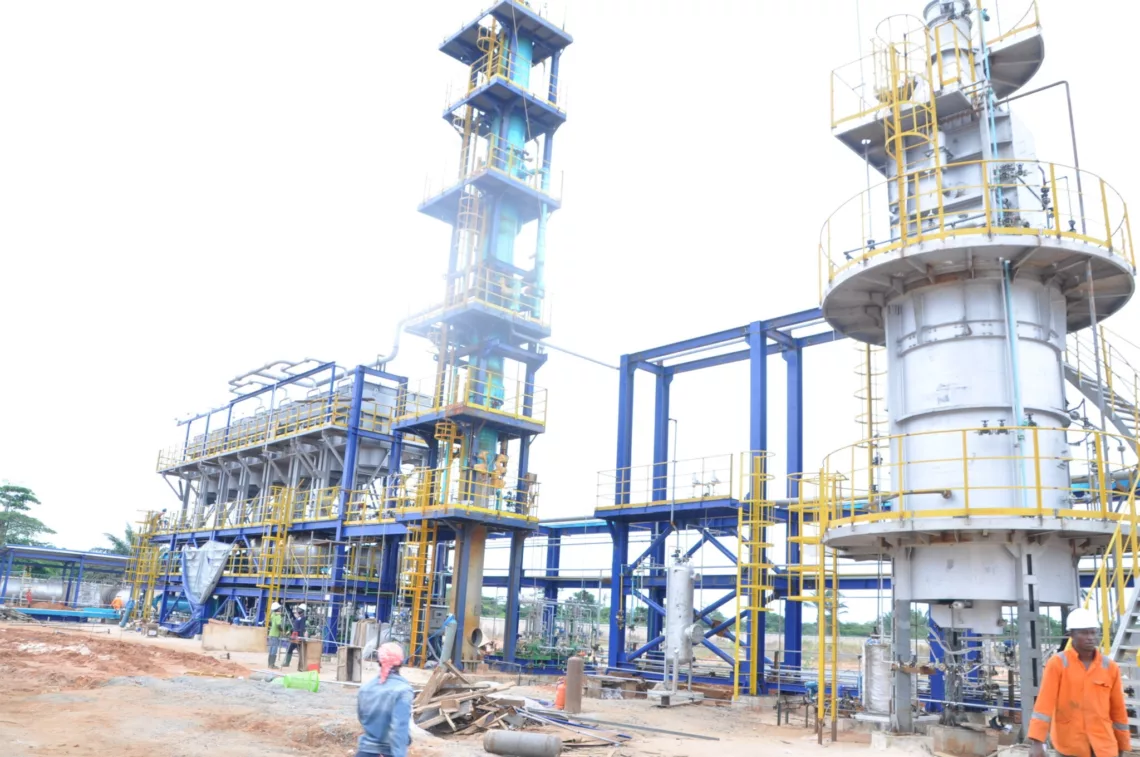Apparent pressure from Nigeria’s labour unions may have informed the federal government’s decision to suspend the removal fuel subsidy by 18 months. The unions also called on the federal government, as part of conditions to remove fuel subsidy, to repair the country’s oil refineries.
However, optimal functioning of the four government-owned refineries is not likely, because a creative destruction of sorts is going on in the petroleum industry in Nigeria, much to the potential chagrin of Ludites. Those Ludites will turn out to be stakeholders of Nigeria’s moribund refineries.
Unable to produce as little as 10 per cent fuel to meet Nigeria’s energy demand, the soon to be operational Dangote Refinery will process about 650,000 barrels of crude oil daily.
The refinery has been completed, according to recent reports in the news media. Test run exercises are currently going on, slated to start operations in Q1 2023. When it comes on board in Q1 2023, the refinery will produce more than 100 million liters of PMS daily, clearly surpassing Nigeria’s fuel demand by almost 100 per cent.
As if that was not enough, BUA Group, one of Africa’s leading Foods, Mining, & Infrastructure Conglomerates signed an agreement with Axens of France for the supply of process technologies for its upcoming 10 million tonnes per annum mega-refinery and petrochemicals facility to be sited in Akwa Ibom, Nigeria.
The multi-billion-dollar integrated 200,000 bpd refinery and petrochemical plant aims at producing Euro-V fuels and Polypropylene for the domestic and regional market.
BUA Group chairman and CEO Abdul Samad Rabiu said, “This 10 million tonnes per annum refinery and petrochemicals project is in line with BUA’s vision to develop local capacity in key industries where we can add most value and where raw materials can be sourced locally. Once completed, this RFCC-based complex will produce high-quality gasoline, diesel, jet fuel meeting Euro-V specifications for the Nigerian market and the larger region. In addition, it will produce propylene, an essential component for the petrochemical industry used in polypropylene-based plastics and packaging. This project will help in reducing Nigeria’s dependence on imported fuels and petrochemicals.”
The new project will go head-to-head with Nigeria’s other large scale refinery project, being built by the Dangote Group.
All of this reality may be the consequence of ‘creative destruction’ at play.
It was Joseph Schumpeter, the renowned Austrian/American economist who propounded the theory that “when an economy slumps and people spend less, inefficient companies go bankrupt. While this causes pain in the short term, it also forces investors to put their money into other, more attractive parts of the economy. This in turn boosts the potential growth rate of the economy in the years ahead.”
Schumpeter and his fellow Austrian, Friedrich Hayek, thus argued that unprofitable investments should be allowed to go bust, to give way to new efficient and profitable ones.
Over the decades, Nigeria’s dependence on the four existing refineries has not been profitable. Going by Schumpeter’s theory of ‘creative destruction’, they should not continue to gulp more of the government’s lean budget, although events have overtaken that wish.
The federal and state governments are making increasingly lopsided expenditure tilting in the recurrent direction, with little left for capital outlay. The trend leaves infrastructure development such as roads construction, power etc., which are necessary for economic growth decrepit.
When actualised, the outward flow of funds consequent to fuel subsidy will be completely reversed, with added revenues from export of fuel products to other countries, taking advantage especially of ready markets in neighbouring countries. The refinery will also create a ready market for the domestic sale of Nigeria’s crude oil, thus increasing opportunities for daily crude oil production.
The developments of BUA and Dangote refineries should also put paid to the government ownership of four refineries in Port Harcourt, Warri and Kaduna, which maintenance industry watchers view as consummate waste. It may also discourage the development of scores of modular refineries that have been licensed in the past.
That trend has become a fiscal culture because Nigeria refines less than 3 per cent of her fuel demand and imports almost 98 per cent of the rest. Since the downstream sector of Nigeria is that weak/under-developed, it makes economic sense to state that strengthening the downstream sector to the extent that 40 percent of Nigeria’s import bill would be saved would be one of the most impactful creative destructions on the Nigerian economy.
Nigeria’s four refineries are not the hope; they have failed to produce nearly enough to meet Nigeria’s daily demand. Modular refineries are neither the solution, as their capacity is minuscule to meet Nigeria’s demand.
The federal government needs to do everything to incentivise the likes of BUA and Dangote Refineries for quick entry. That would be one of the quickest gains and one of the most impactful of diversifications Nigeria so craves.
When the two mega-refineries come on board in the near future, competition will make the prices of petroleum products fall. Government will be in the position, and impelled to subsidise production of the products, rather than consumption.





